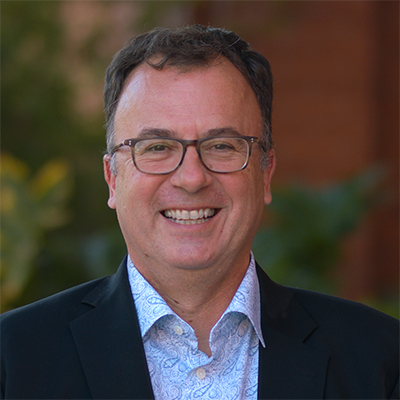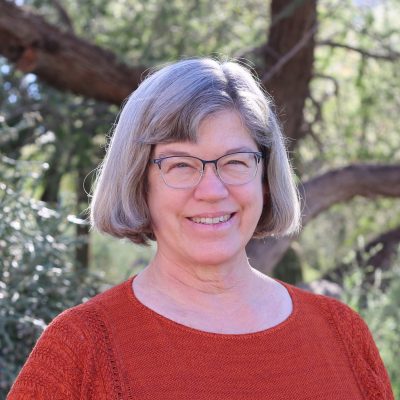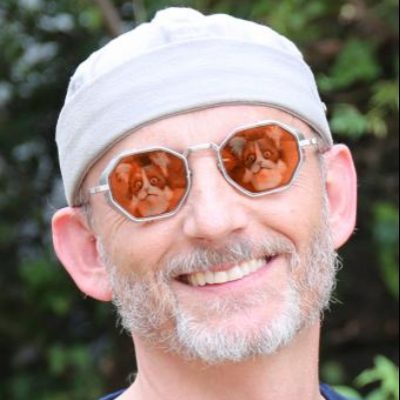16 The Humanist’s Perspective
Alain-Philippe Durand; Kimberly Jones; and Ken S. McAllister
Many people, thinking ahead to college, consider what to major in or what career they’ll pursue. Indeed, majors often seem inextricably linked to careers: science majors go into molecular biology or astrophysics, art majors become sculptors or musicians, engineering majors become bridge builders and tech entrepreneurs. What do humanities majors become? “Baristas,” is the old joke. Interestingly, Howard Schultz, the CEO who grew Starbucks into a multinational conglomerate, and Eric Baker, Starbucks’ senior counsel for Canada (UA BA, German studies), were both humanities majors.
In truth, the study of the humanities is at the heart of all majors and all careers. This is because the humanities — like most disciplines at the University of Arizona — originate from a philosophical outlook, “humanism,” that sees humans as entities responsible for thinking fearlessly, imaginatively, realistically, and rationally about the universe around them. Humanists ask questions ranging from “Why am I here?” and “Where do oceans come from?” to “How do video games impact elementary school education?” and “What are the most effective ways to teach Spanish?” Humanists are inherently connectional, always striving to see how the values and meanings of human life link up with the values and meanings ascribed to other peoples and cultures, plants and animals, the planet, and the space beyond our atmosphere. Speaking of “value,” did you know that Rosa Gumataotao Rios, the 43rd Treasurer of the US, majored in romance languages & literatures? Her signature officially gives value to billions of dollars in cash circulating around the world. Chances are, in other words, that you — regardless of your major or career trajectory — were taught long ago to adopt a humanistic perspective.[1]
The humanities — those disciplines at the core of the humanistic worldview — are ways of thinking about the universe around us. Humanities students specialize in asking and answering questions about where we come from, who we are, and where we are going. They strive to become comfortable dancing with complex and unavoidable life experiences such as ambiguity, risk, love, friendship, and death. Doctors and dancers, physicists and farmers, lawyers, linguists, and land speculators all depend on training in the humanities. The humanities give humanism its voice. Courses in new languages teach not only how other people speak and write, but also how they think. Courses about culture — from ancient poetry to modern day biker clubs — explore how communities work and societies change.
What are the fundamental qualities of a humanities voice? They are innumerable and sometimes so subtle and seemingly natural that they can be difficult to see. The people who draw on them, however, who may or may not be humanities majors, are easy to identify. People with a humanities perspective tend to think about their local context by also looking far beyond it, at the entire world and even the farthest reaches of space. Dr. Dante Lauretta (UA BA, Japanese studies), one of UA’s most distinguished researchers and teachers, has done pioneering work in planetary science and space engineering, most recently through his team’s OSIRIS-REx project. This complex mission landed a robotic probe on an asteroid traveling 63,000 miles per hour, captured more than a terabyte of data, grabbed a kilogram of soil, and is now flying back to earth. Dr. Lauretta’s love of life’s big questions — the ones he encountered in comics and science fiction stories growing up — led him to wonder about people on the other side of the world, and ultimately about the elemental composition of our entire galaxy. He now collaborates with the Japan Aerospace Exploration Agency (a partnership made possible, in part, by his Japanese studies major) and with other space-oriented programs around the world, including the Kenya Space Agency (with which the UA College of Humanities also partners). When Dr. Lauretta looks to asteroids to discover the cosmochemical origins of Earth, he is asking one of the most fundamental (and extraordinarily difficult) of all humanities questions: How did we get here?
For people with a humanities perspective, the drive to create new knowledge by considering multiple viewpoints is grounded in a profound interest in the peoples, cultures, and languages that have populated our world — past, present, and future. They routinely go beyond convention, advancing new (or previously ignored) perspectives on problems, and building relationships with people very different from themselves. This is why people who double major in the humanities and another discipline are so adaptable in their careers.
Humanities-oriented community builders — like UA alumna Jacquie Dorrance (French) — use their keenly developed people-reading and collaborative leadership skills to breathe life into struggling organizations and inspire fence-sitters to take a stand, make a commitment, and change the world. Humanities-trained epidemiologists look beyond their microscopes to consider how human behaviors and belief systems play pivotal roles in disease transmission. Humanities-oriented entrepreneurs — such as real estate developer Bennett Dorrance (UA BA, French) — are more agile in local and international negotiations than competitors who lack such nuanced intercultural comfort. Humanities-oriented engineers build bridges, highways, and urban infrastructure by considering from the outset how people, communities, and the planet will be impacted by their projects, rather than asking such questions only after problems have arisen.[2]
Study upon study documents that skilled workers in virtually every field are measurably more successful when they have a humanities-based outlook. Employers appreciate it when employees can think critically and imaginatively about problems, and are creative under constraint, adaptable in unfamiliar contexts, savvy about collaboration, able to communicate in two or more languages, and practiced at expressing their ideas in multiple ways.
No matter which major (or majors!) you pursue, your courses at the UA will expose you to humanities perspectives. “Exploring Perspectives-Humanities” and “Building Connections” courses certainly will, as will the languages you study. Enjoy diving into these humanities-specific classes, always remembering that any course you take at the University will, at its foundation, be based on humanistic perspectives designed to help you see the world from multiple angles, equipping you to address the world’s — and your community’s — challenges in new and unexpected ways.
- There are a number of intriguing philosophical schools of thought that significantly complicate or even reject conventional understandings of “humanism” (e.g., posthumanism and antihumanism). These approaches are justifiably skeptical about contemplating the universe exclusively from a human point of view, even as they acknowledge the difficulty of thinking otherwise. ↵
- The list of world changers with humanities backgrounds is endless, and includes Anthony Fauci -- director of the U.S. National Institute of Allergy and Infectious Diseases and the chief medical advisor to the President of the United States (BA in classics); Mae C. Jemison -- engineer, physician, and astronaut, with an honorary doctorate from the UA (BA in African and African American studies); Rashida Jones—actor and author (BA in religious studies); Steve Kerr -- NBA Coach (Bachelor of General Studies from the UA); A.G. Lafley -- CEO of Procter & Gamble (BA in French); Viggo Mortensen -- actor and author (BA in Spanish); Phebe Novakovic -- CEO of General Dynamics (BA in German); J.K. Rowling -- author (BAs in French and classics); and many others. ↵
Your major is your discipline and area of study in which you will earn your degree. Your major will provide you with skills, knowledge, and abilities informed by that area of study, thereby providing a focus for your learning. Your major may relate to your future career, your scholarly interests, or both. Majors have degree requirements and minimum units that need to be completed to earn your degree, and your Academic Advisor can help answer your questions about your major.
Alumnus comes from Latin and is used to refer to a graduate from a particular school. It is the singular, masculine form of the word. Alumni is the plural, masculine form. Alumna is the singular, feminine form of the word, while alumnae is the plural, feminine form.
It is also seen written as alum (singular) and alums (plural) to avoid using either of the gendered forms of the word.




